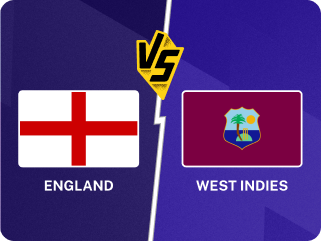
Arjuna Ranatunga led Sri Lanka to World Cup glory in 1996 and later elevated their Test status with a win in England in 1998. He was named a Wisden Cricketer of the Year in 1999.
Arjuna Ranatunga played his final Test in August 2000 and finished with 5,105 runs at 35.69, while in 269 ODIs he aggregated 7,456 runs at 35.84.
Almost two decades ago, the Indian player Ravi Shastri, now a commentator, took an Indian youth team to Sri Lanka and came up against a 17-year-old schoolboy, who scored an unbeaten hundred. “He was the same tubby chap, the same clever batsman, the same streetwise cricketer we have been watching in Test cricket all these years,” Shastri recalled. “He has had a magnificent career, and I often think that in many ways he is Sri Lankan cricket.”
Arjuna Ranatunga was born on December 1, 1963, in Colombo, Sri Lanka. He was still at Ananda College, just over a year after he made Shastri suffer, when he appeared in Sri Lanka’s first Test, against England, and scored their first Test fifty. He assumed the captaincy in 1989 and has held it ever since, apart from a brief interruption while he was in dispute with the Sri Lankan board. By the time he led his country to victory over England at The Oval in August 1998, he had played in 82 of their 87 Tests, and had captained them in all but two of their 14 victories. They had also become the world’s one-day champions, winning the World Cup and six other multilateral tournaments inside three years.
Ranatunga’s guiding hand can be seen in every success the side has had in the past few years. That, as much as his batting, which by the end of the Oval Test had produced 4,595 Test runs (or walks, since so many were strolled), has brought about his selection as one of Wisden‘s Five Cricketers of the year. Five Sri Lankans have now been chosen, four of them in the past four years. Among the others was Sanath Jayasuriya, and Ranatunga’s faith played a major part in his success. He wanted to use more cricketers from outside Colombo, he believed in Jayasuriya’s ability and was prepared to experiment with a middlingly successful middle-order all-rounder in the hope he would turn into a ferocious opening batsman. Even Ranatunga could not imagine how well that theory would work.
The obvious high point of Ranatunga’s career came when he coaxed and cajoled his side to their World Cup success in 1996. But he ranks the performance in England in 1998 close to it. Sri Lanka pulled off a spectacular double, winning first the Triangular Tournament and then crushing England by ten wickets at The Oval. This was his crowning moment as a strategist: he was derided when he put England in on a good pitch, especially after they scored 445. “I knew we had to rely entirely on Murali’s bowling for victory and that I could not enforce a follow-on because of the amount of work that was likely to fall on his shoulders,” he said. Was this a sublime piece of captaincy or a lucky chance? Or a subtle piece of spin doctoring? Whichever, the result was another memorable moment in the rise and rise of Sri Lankan cricket.
Ranatunga attributes his success to building a family atmosphere in the Sri Lankan dressing-room. “I call the boys malli – which is young brother in Sinhalese – and they call me aiya, or elder brother”. He understands about family atmosphere. Two of his brothers, Dhammika and Sanjeewa, have also played Test cricket for Sri Lanka; a third, Nishantha, has appeared in one-day internationals. Comparisons with the Grace brothers come to mind. Dhammika, a year older than Arjuna, is now chief executive of the Sri Lankan board. If, as is popularly rumoured, Arjuna wants to enter the political arena like his father and another brother, Prasanna, he may do so by way of cricket administration too.
Happy birthday to Arjuna Ranatunga, the captain who led Sri Lanka to World Cup glory in 1996! pic.twitter.com/9xnh3sOl57
— Wisden (@WisdenCricket) December 1, 2020
In 1998, despite briefly using a bat bizarrely advertising Sam’s Chicken and Ribs, Ranatunga lost 12 kilos. He argues that, if the new Sri Lanka is to succeed, the young players must also follow his lead in self-denial. In the old days it was fine for a young player to make his name in the team with some spectacular shot. But now the new boys will have to be fit and to be good fielders too. The rest of the world was happy for us to be the attractive cricketers who never won anything. Now they have to respect us for our skill and dedication and professionalism.
He believes that the new, aggressive, Sri Lankan attitude dates to 1995/96 when they first faced trouble in Australia over Muttiah Muralitharan’s bowling action. The Sri Lankan created a stir by answering each sledge with one of their own. When they returned to Australia for the one-day series early in 1999, Ranatunga became even more aggressive after Ross Emerson no-balled Muralitharan again. He wagged his finger at the umpire and led his team off. But he believes a captain must defend his players, come what may. Throughout this unnecessary crisis – despite the booing, the tasteless banners and the one-sided abuse in Australian newspapers – Ranatunga lost his impressive mien only briefly. The most touching sight of the resulting disciplinary hearing was the arrival of his team demonstrating their loyalty to a much-loved captain.







